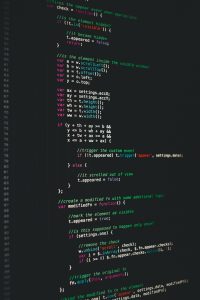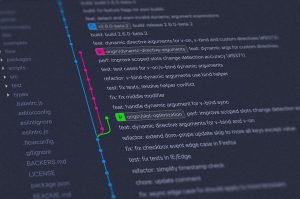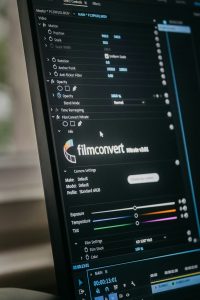How to Become SDM – Eligibility & Preparation
13 min read
Are you an aspiring candidate looking forward to the relevant information regarding How to become SDM? Then, here you are at the right place. In this article, I have shared all the detailed information of SDM – Eligibility Criteria, Syllabus, Exam Pattern, and Preparation.
It is the dream of many parents that their children should be Government Officer. SDM is a very appropriate position for such candidates and others who aim to. But you need to work hard with dedication to crack the competitive exam-UPSC.
In this article, I have also shared the tips to crack UPSC Exam. Keeping reading the article till the end to know all about SDM and tricks to crack the exam. So let’s get started.
Who is an SDM
SDM stands for the Sub-Divisional Magistrate who is entitled to be Chief Civil Officer of a District’s Subdivision. SDM is also called the Executive Magistrate of the District Sub Division. The Magistrate in charge of that particular subdivision is known as Sub Divisional Magistrate.
An SDM is responsible for law and order in a particular subdivision. Planning, coordinating, and discharging the various responsibility of a subdivision.
SDM has authority over the Tahsildar and other Government employees. He/She can also communicate with government officials on various matters of vital importance.
Full form of SDM
SDM stands for Sub Divisional Magistrate. A State that has a division is known as District. The district is again divided into a part, which is called Subdivision. The person responsible for the subdivision of a District is called SDM.
How to Become SDM
To become an SDM, you must pass 12th class and hold a graduation degree from a recognized university. Then, you need to apply for Civil Services Exam conducted by Union Public Services every year. After cracking the UPSC you become an IAS officer and posted as an SDM.

Now, it is crystal clear that to become an SDM you have to become an IAS officer first. To become an IAS Officer you must qualify for Civil Service Exam (CSE) conducted by Union Public Service Commission. To apply for the UPSC exam you must be eligible for some criteria. Do you want to know the eligibility criteria to become an SDM and apply for UPSC then read it below?
Eligibility Criteria
To become an SDM officer you need to possess some eligibility criteria. The eligibility criteria to become an SDM Officer are as follows.
Nationality: The candidate should be a citizen of India.
Educational Qualification: The candidate should hold a graduation degree from any university in India. A graduation degree is a must to become SDM. Even the students appearing for the final year of graduation can apply for the Civil Services Exam.
Points to be Noted
- The graduation degree can be in any of the fields of his choice.
- Even those candidates who have completed their education from distance education or through correspondence education are eligible to apply for a post of a Dm.
- Candidates can apply for the examination even in the final year of graduation.
- Candidates awaiting the results are also eligible for the Prelims Exam of the UPSC-CSE Exam. But for Mains Exam they have to produce proof of passing the exam.
- Candidates with technical degrees are also eligible to apply for this post.
- Also, a candidate with a professional qualification can apply for the exam.
- A Medical student who has completed the degree but is undergoing an internship program is also eligible to apply for the post.
- Candidates who have passed the ICAI, CWA, or ICSI Exam.
Age Limit
- The candidate to be eligible for the exam should at least be 21 years of age. The maximum limit for the examination is up to 32 years as on 1st August 2020.
- The relaxation for the SC/ST candidates is 5 years. Thus, the maximum limit extends to 37 years.
- 3 years of relaxation for OBC and the age limit is relaxed up to 35 years.
- 3 years of relaxation for a person in defense services, who is not able to fulfill the operation with any foreign country.
- 5 years of relaxation for ex-servicemen which includes commissioned officers, ECO’s/SSC’s Atlas of 45 years of military service as on 1st August 2020 and have been released.
- 10 years of examination for handicapped, blind, deaf, a person suffering from autism any other intellectual disability, locomotor disability, and multiple other disabilities.
| Category | Age Limit | Relaxation |
| General | 21-32 years | No relaxation |
| OBC | 21-35 years | 3 years |
| SC/ST | 21-37 years | 5 years |
| Ex-Serviceman | 21-37 years | 5 years |
| Disabled | 21-42 years | 10 years |
Physical Fitness Standards
A person who is physically fit according to the physical standards set by a UPSC is eligible for the admission to Civil Services Examination.
Number of Attempts
The maximum number of attempts every candidate in the General Category is allowed is 6 attempts.
The maximum number of attempts according to the caste category is as listed below.
| Category | Number of Attempts |
| General Category | 6 Attempts |
| OBC | 9 Attempts |
| SC/ST | No limit till 37 years |
| General Category (Handicapped) |
9 Attempts |
| OBC (Handicapped) |
9 Attempts |
| SC/ST (Handicapped) |
No Limit |
SDM Entrance Exam
To become an SDM officer, you first need to become an IAS officer. To become an Indian Administrative Service Officer(IAS) you need to crack the UPSC- Civil Service Exam(CSE). UPSC is the central agency of India that conducts the CSE exam for qualifying an IAS Officer. The first posting after becoming an IAS Officer is that of an SDM.
How to fill IAS Exam Form
If you want to apply for the UPSC exam and fill the IAS form then you just need to follow the simple steps given below.
Step 1: Go to the Official website of UPSC is www.upsc.gov.in
Step 2: Click on Online Application for Various Examinations.
Step 3: The next step is to click on Service and then go to Civil Services Exam – Preliminary Exam.
Step 4: Start registering now with IAS Part 1.
Step 5: Fill the form with all your personal details.
Step 6: The fee for this particular form is Rs. 100/-
Step 7: You can choose the exam center at your convenience.
Step 8: Be particular with your passport size photo, signature & identity card.
Step 9: Accept the Declaration by clicking on it.
Step 10: After rechecking the details click on the Submit button.
Step 11: Keep the printout with you.
What is UPSC
UPSC Exam Overview
| Exam | UPSC – CSE Exam |
| Authorized Body | Union Public Service Commission |
| Level | National |
| Exam Stages | 1. Preliminary 2. Mains 3. Interview |
| Eligibility Criteria | Nationality – Indian Age Limit – Between 21 to 32 years ( General Category) Age limit for OBC – 35 Years Age limit for ST/ST – 37 Years Educational Qualification – The candidate must have completed graduation in any field. |
| Number of Attempts | 6 Attempts (General Category) For OBC – 9 ST/SC – No limit |
UPSC-CSE Exam is conducted in three stages namely- Preliminary Exam( CSAT Test) comprising of two papers which are objective type, Mains Exam which includes 9 papers which are subjective type. After qualifying the two phases you are eligible for the Interview Process. To read more detailed information regarding the UPSC exam read the UPSC exam details.
UPSC is an All India Exam to become DM, IFS, IAS, IPS, SDM & Collector. The total number of vacancies after qualifying for this exam is approximately 800 and above. More than 8 lakhs candidates apply for this National Examination every year.
Online Application for the exam starts from February to March tentatively. Generally, UPSC conducts an exam once a year generally in the month of October. The result of the exam is declared in the month of November.
The civil services examination is divided into three stages.
- Preliminary Exam
- Mains Exam
- Interview
1. Preliminary exam
The preliminary exam has 2 papers that are conducted. Each paper has 200 marks a total of 400 marks. The question paper is in two languages namely English and Hindi. The duration of the paper is 2 hours each paper. This examination carries a negative marking of the one-third penalty. That is for each wrong answer there is a negative marking of 0.33 marks. This paper has objective-type questions which comprise multiple-choice questions.
Preliminary Exam Details
| Paper | Type | Number of Questions |
Marks | Negative Marking |
Duration |
| Paper 1 | Objective | 100 | 200 | 0.33 | 2 hours |
| Paper 2 | Objective | 80 | 200 | 0.33 | 2 hours |
Syllabus for the Preliminary Exam
Paper 1. Current affairs
Here, you need to have very good general knowledge and good general studies of current events going on at the National and international levels. You need to read newspapers to gain general knowledge.
Paper 2. Civil Service Aptitude Test (CSAT)
This paper comprises competencies related to comprehension, interpersonal, and communication skills. Hereby analytical ability, logical reasoning, and mental ability are also tested. Also, there are questions related to decision-making and problem-solving.
The syllabus for both the papers of the Preliminary exam is listed below.
| Paper 1 | Indian History General Science Indian Politics Current Events General Issues Indian Geography World Geography Social Development Economic Development |
| Paper 2 | Communicational Skills Intrapersonal Skills English Skills English Comprehension Language skill that is chosen by the candidate Decision-making skills Problem-solving ability Mental Ability Basic Numeracy |
2. Mains exam
After qualifying for the preliminary exam the candidates are eligible for the second round that is the mains exam. Generally, Mains Exams are conducted in the month of January. After the mains exam, the candidate will be liable for the process of the interview. Mains Exam has the descriptive type of questions.
Syllabus for Mains Exam
The total marks for this examination are 1750 marks. Though the Mains exam consists of 9 papers, out of these 9 papers, only 7 papers will be taken for the merit ranking. For the remaining two papers the candidate should obtain the minimum marks as set by UPSC. This exam includes a total of 9 papers namely.
Mains Exam Details
| Paper | Syllabus | Marks | Duration |
| Essay | Essay on any topic | 250 | 3 hours |
| General studies 1 | Indian Heritage, Culture, Geography |
250 | 3 hours |
| General studies 2 | Constitution, Governance, Social Justice |
250 | 3 hours |
| General studies 3 | Technology, Environment, Disaster Management |
250 | 3 hours |
| General studies 4 | Ethics, Integrity, and Aptitude |
250 | 3 hours |
| Optional subject 1 | Any | 250 | 3 hours |
| Optional subject 2 | Any | 250 | 3 hours |
| Paper 1 | Indian Language (Anyone of the language) |
300 | 3 hours |
| Paper 2 | English language | 300 | 3 hours |
Syllabus for the Mains Exam
Essay
To write an essay on any one topic. You can choose the option of your choice from the given options.
General Studies 1 – Indian Heritage and Culture
- Indian Culture
- Modern Indian History
- History of the world
- Society
- Geography
- Events, Forms, and Effects on Society
General Studies 2 – Indian Constitution and Indian Politics
- The Constitution Of India
- Amendment Procedure
- The Political System
- Central Government And Administration
- The Electoral Process
- Administrative Law
- Central And State Government Privileges
- Public Services
- Social Welfare And Social Legislation
- Control over Public Expenditure
General Studies 3 – Science And Technology
- Energy
- Computer and Information Technology
- Biotechnology
- Disaster Management
- Nuclear Policy Of India
- Space Technology
- Environment
- Security
- Agriculture
- Economy
General Studies 4 – Ethics And Human Interface
- Ethics and Human Interface
- Aptitude
- Attitude
- Integrity
- Emotional Intelligence
- Public Service Values And Ethics in Public Administration
- Probity in Governance
Optional Subjects
There are 2 Papers on Optional Subjects. The candidate is supposed to choose any 1 optional subject out of 48 total options. The 2 papers are combined and are of a total of 500 marks.
You need to be very careful while choosing your optional subject. You must know which optional subject will work best for you.
The candidates can choose their Optional Paper 1 & Paper 2 from the subjects listed below.
- Law
- Physics
- Statistics
- Philosophy
- Zoology
- Sociology
- Public Administration
- Political Science
- Medical Science
- Management
- Mechanical Engineering
- Civil Engineering
- Electrical Engineering
- Economics
- History
- Geography
- Mathematics
- Geology
- Commerce
- Agriculture
- Animal Husbandry
- Chemistry
- Botany
- Anthropology
English & Language Papers
The pattern of both papers is almost the same in nature. The English language is a compulsory language. Whereas, other languages can be chosen from a list of languages.
The pattern of the paper is as follows.
- Essay– 100 Marks
- Comprehension– 60 Marks
- Precis Writing– 60 Marks
- Translation from English- 20 Marks
- Translation from Chosen Language– 20 Marks
- Grammar– 40 Marks
Please Note: The candidate is free to choose his writing language as English, Hindi, or any other language listed in the Indian Constitution.
Also, Read
3. Interview
After cracking the Mains Exam you are qualified for the Interview Process. The personality Test is 275 marks. The main purpose of the interview purpose is to judge the candidate’s suitability for the civil service position and capability to take responsibility. The Board judges the candidates on various parameters including mental and social traits.
During the interview subject knowledge, personal skills, as well as Mental Ability, is tested. In the interview, only academics knowledge is not tested but the personality test is all about how much the candidate is alert and all aware of the events happing around. The marking criteria for the Personal Interview Process are based on mental alertness, logical reasoning ability, clear exposure, proper judgment, and intellectual ability.
After cracking the final round of interviews a candidate is qualified to become an IAS officer. When you qualify for the interview round you become IAS Officer. The first post after becoming an IAS Officer is SDM.
Syllabus for Interview
- This is basically a question and answers session
- The interview is nothing but a Personality Test.
- Even current affairs and General knowledge questions can be asked for an interview.
Books & Study Material
To crack the UPSC examination you need to have General Knowledge. For this, you need to keep on reading the newspaper. Hindu newspaper, Jagran Josh, Economic Times, & Indian Express are something I would suggest to enhance your general knowledge and current affairs.
Other lists of books that I would suggest are as follows.
- Indian Polity For Civil Service Examination -Indian Polity by Laxmikanth
- Indian Year Book
- Indian Economy by Ramesh Singh
- Oxford Geography Atlas
- A Brief History of Modern India
- Indian Art And Culture
- Fundamentals of Geography(NCERT)
- Concise History of Modern India by Sujata Menon
- Facets of Indian Culture
- The Constitution of India by P.M Bakshi
- Indian Economy by Mishra and Puri
Role of an SDM
The role of SDM in a particular subdivision is very similar to the role of Deputy Commissioner of a district. But there are few cases and matters where SDM consult the deputy commissioner before taking any major decision. SDM is a person who is responsible to maintain law and order within a particular Sub-district.
Responsibility of an SDM
An SDM has to full fill many responsibilities of a subdivision. He is responsible for various functions within a subdivision. The responsibility and functions of an SDM are as follows.
1. Judicial Functions
SDM of a subdivision is a returning officer for a constituency delivering the time of the Lok Sabha Elections.
2. Developmental Functions
- SDM plays a vital role in the planning, execution, and implementation of rural development areas in his/her sub-division.
- He/She is responsible for the growth and development of the subdivision.
3. Revenue Functions
- SDM has to supervise and inspect the matters related to the assessment of land revenue and collection of land revenue.
- To look after various departments in the subdivision like agriculture, health, etc.
4. Executive Functions
- SDM has the authority to ask for any records and registers which are kept in police stations. He can also analyze the records from the registers.
- SDM can ask any station house officer of a police station to visit him/her regard to any matter or crime.
- He/she is responsible to maintain peace and harmony in his/ her sub-division. For this, you can bind any offensive or unacceptable element in a particular subdivision.
5. Magisterial Functions
- To co-operate with the police station in that particular subdivision.
- To maintain the relations with various communities residing in the subdivision.
- To take measures in case of emergency in the particular subdivision. At the time of natural calamities or even at the time of festivals.
- To give various suggestions to the district magistrate of that district.
- SDM is given inner parts for criminal procedure code to ensure effective supervision and maintains law and order in a subdivision.
SDM Salary
The salary of an IAS officer appointed as SDM includes basic pay, Dearness Allowance (DA), House Rent Allowance (HRA), and Transport Allowance (TA).
The basic pay of an SDM is Rs. 56,100/- with an experience of 1-4 years. The salary increases with the increase inexperience.
Tips for IAS Preparation
1. Early Preparation
MPSC is one of the toughest competitive exams. It is not going to be an easy task to crack it. Simultaneously many candidates also apply for vacancies. So if you want to come out with flying colors in this competitive exam you should start your preparation early.
Last moment studies are not at all going to help you. Start your UPSE-CSE Exam Preparation after the 12th itself. You will get the total span of the graduation period to prepare for the examination.
2. Attention on all the subjects
Give overall attention to all the subjects. Focus more on the subject which you find difficult. Also, pay more attention to the technical subjects.
3. Solve all your doubts
Try solving all your doubts at that particular time only. Do not proceed further by keeping a doubt. Get a solution to your doubts and issues.
4. Constant Reading
If you want to crack MPSC Exam it is mandatory for you to develop a reading habit. Read more newspapers. Surely, this will enhance your General Knowledge and Current Affairs.
5. Time Management
Proper time management and scheduled time table is a perfect key solution to crack this examination. Balance time management with all the subjects and distribute the time evenly.
6. Smart Study with proper guidance
The prior most step before starting the preparation is to understand the examination pattern and syllabus. Study accordingly is a smart study.
7.Previous Year UPSC Paper Solving
After the preparation revision is a must. Yes, I do agree but with revision previous year paper solving is also a must. You will understand the paper pattern and will be used to and prepared for the examination.
UPSC Topper Interview
UPSC Topper Dr.Jitendra Agrawal’s interview questions. He ranked UPSC-128 Rank in 2019. Read his detailed information.
How to become SDM FAQ’s
How to become SDM after 12th?
You cannot apply for the UPSC after the 12th. Because to apply for UPSC you need to eligibility criteria of at least graduation. But you can join coaching or start your preparation of UPSC just after your 12th class.
Difference between SDM and DM?
DM is the administrative head of the district. Whereas SDM is an administrative head of the district sub-division. This is the main point of differentiation between SDM and DM.
Difference between SDM and Deputy Collector?
To simply answer this question I must say there is no much difference between the 2 posts – SDM & Deputy Collector. Also, the role & responsibilities of SDM and deputy Collector are almost the same. In fact, to tell SDM is one of the positions that a Deputy Collector can gain after promotions.
Conclusion
To conclude, this was all about how to become SDM. Hope this relevant detailed information on SDM might have solved all your related queries. Yet any more queries you can ask me. For asking you can get connected to me by commenting in the comment box. I will get back to you with a proper solution.
If the article is value-adding do not forget to share it with friends!!! Sharing is Caring.






